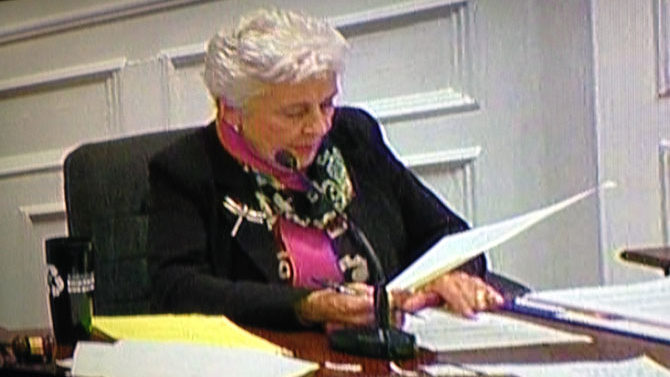Former commissioner and mayor Doc Eldridge told me once that there is a culture within the Athens-Clarke County Commission, as in any group, that you don’t understand until you’re a member. Regardless of your politics, once you’re elected, you begin to develop a loyalty to the commission as an institution, according to Doc. That’s easy to understand, since commissioners are under pressures that only they experience: up there together in front of the public and the press, always at the beck and call of constituents, never knowing how long a phone call or a trip to the grocery store will take. We can understand how a camaraderie develops among people who share a common set of pressures unique to them. Even if Commissioner Lowry disagrees with the politics of Commissioner Maxwell, they share a way of life that can only be understood by other commissioners, and this creates a bond, an insider mentality that by definition excludes outsiders.
And then there’s the mayor, who herself is a part of the commission but is not on the commission. The mayor, by the requirements of her office, is an outsider on the commission but an insider in the institution known as “the mayor and commission,” the local government. The mayor has just enough power that the commissioners have to work with her but not enough to force her policies through the commission. More than any commissioner, the mayor is the public face of the government, because she is elected by all the voters instead of those in just one district. She sets the tone, and the commissioners are inevitably influenced by her vision for the government, even if they disagree with it.
Much has been written over the years about our “progressive” local government, and many election battles have been fought to assure that progressive candidates were elected. Gradually, over the years, citizens came on the commission who understood the importance of our built environment to the beauty and charm of our community, who understood the importance of downtown and local business, the university as a partner, a decent transportation system—adequate roads for cars, buses and bikes and sidewalks for pedestrians. Even these progressive commissioners, though, couldn’t do much about the endemic poverty, the devastation of public school budgets by state government, the tsunami of downtown student housing, the influx of corporate chains forcing local businesses out.
The election of Mayor Nancy Denson brought a kind of “it’s all good” attitude toward the lessening of progressive concerns on the commission, a kind of “business as usual” outlook. Instead of fighting the mayor, the commissioners by and large have settled in and contented themselves with seeing that the buses run on time, with no large initiatives that call for a change in the status quo. The Republican state legislature redrew commission districts under the banner of opening up more seats for African Americans, but the reality, of course, will be fewer African Americans. Fewer progressives, too, probably. Districts 5 and 7 could very well elect, under the Republican redistricting, candidates more in line with the mayor than with the progressives still on the commission. This election year could bring us, along with the re-election of the mayor, another shift away from progressive government toward more of a culture of middle-of-the-road mediocrity, negating all those past struggles to elect candidates who understand what Athens can be.
Does anybody care?
Like what you just read? Support Flagpole by making a donation today. Every dollar you give helps fund our ongoing mission to provide Athens with quality, independent journalism.










